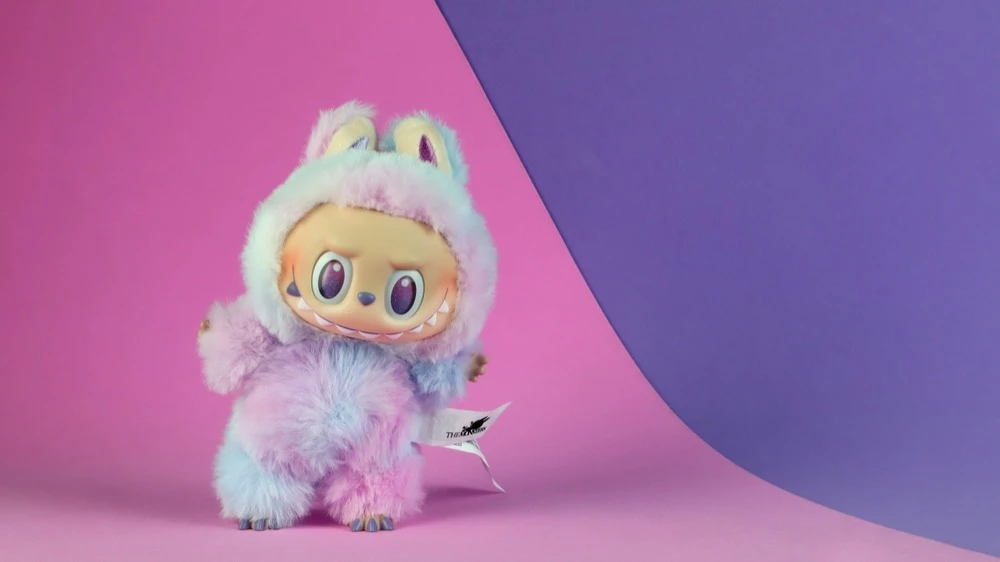Contrary to Wall Street: why does Bernstein advise selling shares of Labooboo's creator?
Risks to Pop Mart grow amid cooling demand for 'blind box' toy

The excitement around popular Labooboo toys is approaching its peak, and the potential for further growth of Pop Mart shares looks restrained, says analyst Bernstein - the only expert on Wall Street, recommending investors to sell shares of the manufacturer. Pressure on securities creates growth of short positions: investors more and more actively bet on falling of quotations of the Chinese company. At the same time, other analysts remain optimistic, pointing to global expansion and the emergence of new brands that could partially replace Labuba.
Details
Melinda Hu, Senior Consumer Analyst at Bernstein, believes that the excitement around Labooboo toys from China's Pop Mart International Group is approaching its maximum. She is sure: the prospects of the new sales driver are vague, so the potential for further growth of quotations is limited, Bloomberg writes .
According to Hu, the "scarcity, the excitement of the hunt [for Laboubou], the dopamine release and the brisk resale on the secondary market" that fuel Laboubou's popularity are reminiscent of the speculative bubble around Beanie Babies, the animal-shaped stuffed toys that became the object of mass mania in the late 1990s. At the time, collectors bought them up as investment objects and prices soared, but by 1999 the bubble burst and most of the toys were almost completely devalued.
"I would not advise long-term investors to build up positions in Pop Mart until the company revises its strategy," the Bernstein analyst emphasized.
Bernstein forecasts that Pop Mart will show the maximum revenue growth rate of about 145% per year in 2025, but then margins will start to shrink. The reason is the increase in marketing costs: the company will have to increasingly maintain the popularity of its characters and invest in international expansion.
Hu also expresses doubt that Labooboo will be able to become an "evergreen" brand on the level of Hello Kitty or Barbie. She notes that their popularity is based on a classic model: no artificial scarcity, speculative marketing, or "blind box" mechanics where the customer doesn't know what kind of toy they're getting. The products are consistently available to a wide range of customers - and that, she says, is what ensures their long and sustainable life in the marketplace.
Although Pop Mart shares have already fallen below Hu's target price - to HK$216 in Nov. 17 trading against her forecast of $225 - the analyst is in no hurry to revise the valuation, stressing that it is based on a long-term view of the company.
What other analysts are saying
Traders' positioning in the market also suggests growing doubts about Pop Mart's short-term prospects, Bloomberg notes. The share of short positions from freely traded shares climbed to 2.8%, the highest since April 2024, according to S&P Global data. The strengthening of "shorts" means that more investors are betting on the decline of Pop Mart shares: they borrow papers, sell them now and expect to buy back cheaper later. In other words, the market is increasingly expecting a fall in Pop Mart's quotations in the coming months.
However, Melinda Hu of Bernstein remains the only analyst recommending investors to sell the stock. So far, Wall Street remains generally optimistic about Pop Mart: according to Bloomberg, of the 46 analysts tracking the company's securities, 42 maintain a "buy" recommendation and three others a "hold" recommendation.
Optimistic analysts believe that Pop Mart still has significant potential: the company is in the early stages of global expansion and is actively expanding the lineup of its signature characters and brands around which the entire business is built.
"We believe the market is underestimating Pop Mart's efforts to expand its intellectual property," Morgan Stanley analysts said.
According to them, the company relies not only on new releases, but also on entertainment - theme parks, movies and collaborations with artists. This helps extend the life cycle of characters and reinforces the value of intellectual property.
JPMorgan also sees an alternative to Labooboo. Analyst Kevin Yin believes that the Twinkle Twinkle line of toys is building its own, sustainable fan community and is not seen by consumers as a "fallback" to Laboob. He predicts the series' share of sales will grow to 8% by 2027, up from 2.8% in the first half of this year.
What's up with Pop Mart stock
In trading on Nov. 17, the stock rose weakly, by 0.2%. From the beginning of last year to the August peak, shares of Pop Mart in Hong Kong soared more than 1,500%, but then fell back 38%. Pressure on quotes was exacerbated by an incident during a November 6 stream, a popular sales format in China where presenters showcase products.
During the broadcast of DIMOO decorative pendants, a camera recorded a conversation between employees that quickly went viral on social media: one of them remarked that the 79 yuan price of the product was "too high," to which another replied, "It's okay, there will be people who will pay." Doubts about the justification of Pop Mart's product prices caused the stock to fall 5 percent on Nov. 7, to its lowest level since Ma.
This article was AI-translated and verified by a human editor
